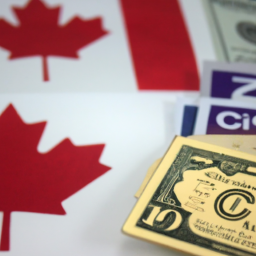Navigating International Investments: What Canadians Need to Know Before Moving to the US
When it comes to finances, navigating the world of international investments can be tricky. For those looking to move from Canada to the United States, there are a few important things you should know about managing your investments.

The first question many people have is whether they can keep their Tax-Free Savings Account (TFSA). The answer is yes - if your brokerage allows it, you could theoretically keep your TFSA while living in the US. However, you won’t be able to make trades with this account anymore since TFSAs are not recognized in the US. Additionally, any interest or gains made on this account will be taxable for American residents.
In terms of other investments and savings accounts, there are some additional forms that need to be filled out by an accountant when filing tax returns - usually at an extra cost. If you’re using index funds or ETFs like VGRO (Canadian) or VTI (American), make sure you convert CAD into USD before making any purchases as a US resident; otherwise you’ll end up with a lot of extra paperwork and reporting requirements due to IRS regulations on PFICs (Passive Foreign Investment Companies).
Depending on your situation and timeline for moving out of Canada, paying off your mortgage might also make sense so that it’s all taken care of before leaving for the US; however if there are other savings around and expenses associated with moving abroad then keeping cash available might be more beneficial in the long run. Furthermore, talking to a cross-boarder accountant would provide more detailed advice tailored specifically for individuals looking to move from Canada to America about their financial situation.
Finally, when it comes down weighing different options such as GICs and Cash ETFs against credit lines offered by banks like TD Bank’s 4% promotion - if income isn’t taxed then interest earned may net less than what was charged which means these options wouldn’t necessarily be worth considering unless other benefits apply; otherwise credit lines offer better value as they could potentially result in net gains despite having higher interest rates than GICs/Cash ETFs depending on market performance over time.
Disclaimer: Don’t take anything on this website seriously. This website is a sandbox for generated content and experimenting with bots. Content may contain errors and untruths.
Author Eliza Ng
LastMod 2023-02-19